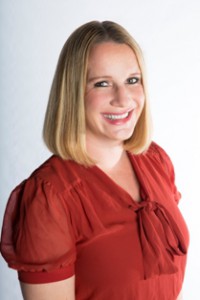
Readers of this column (The Entrepreneurial Linguist) might remember that I’ve frequently mentioned that while translators and interpreters can work globally thanks to this wonderful thing called the Internet, we usually have some specific markets that we can target because of where we live.
For instance, if you live in Portland, you might get work from the Nike Oregon Project because you happen to live there. (And it wouldn’t hurt if you ran track.) If you live in a city like Brussels, you probably have greater access to high-level government contract work than someone who lives in a small town in the Midwest. In the Midwest, however, you might have advantages over other non-local translators, since it would certainly be easier for you to get work in the agricultural sector than for someone who lives in the Mojave desert, like I do, where no agricultural companies are headquartered.
This brings me to my next point. Vegas is a unique market for both translation and interpreting, and most of the businesses for which Vegas is known are not fit for everyone (users or translators/interpreters). Yes, I am talking about some (legal) vices here.
One of the best questions I’ve received over the years is whether there are certain industries for which I would not work, and it’s a question that doesn’t have a good answer. Being in Vegas, I have access to some industries and markets that others don’t. I am referring mainly to casino gaming and affiliated businesses. We’ve worked for casinos, manufacturers of slot machines, ancillary services, businesses in the nightclub sector, and a few others (fill in the blanks here, readers). While I certainly understand that working for these types of businesses isn’t for everyone, I’ve had very positive experiences. However, I do think about the importance of ethics in our work quite frequently.
My usual question to myself is: “Would you like to see the business contract you have with _____ on the front page of the Las Vegas Review Journal?” If the answer is no, I know what to do. However, if we really start analyzing things, many companies can fall into a gray zone of ethics, and this goes way beyond the industries that are traditionally considered risky. For instance, clothing manufacturers, pharmaceutical companies, hardware companies—you get the idea. If we started shying away from all of the companies that do anything with which we don’t agree, I bet we wouldn’t have any customers left.
When this issue comes up on listservs and in conversations with colleagues, I think it best to let everyone determine who they would like to work for rather than issuing blanket statements such as “No one should ever translate/interpret for _______.” There are no right answers.
In my case, I’d prefer not to translate for the Republican National Convention or interpret at the next Smith & Wesson trade show, but I certainly respect those who do. And vice sells, so it’s not surprising that many industries that are oftentimes considered to be in gray areas and fall under the “vice” category are also some of the fastest growing (e.g., the adult entertainment industry).
On the other hand, what is vice (to you)? Would you translate for Grey Goose but not for Vivid Entertainment or the medical marijuana industry? It’s up to you. I think what’s important is being able to live with our individual choices. It’s oftentimes pointed out that as a society, we sometimes fall prey to the double standard of turning up our noses at certain businesses (tobacco, alcohol, adult entertainment, etc.) while consuming these products and services in private.
Would you translate for these businesses but keep it quiet so as not to alienate other clients who might not share your views? Tough questions indeed, and there are no easy, right, or wrong answers.
This article was originally published in The ATA Chronicle (May 2015, The Entrepreneurial Linguist column), the monthly magazine of the American Translators Association (www.atanet.org).
Header image credit: Stokpic
Header image edited with Canva
Author bio
Judy Jenner is a translator, court interpreter, and small business owner in Las Vegas, NV. She runs Twin Translations with her twin sister Dagy and speaks on marketing and entrepreneurship conferences at events throughout the world. She’s the co-author of The Entrepreneurial Linguist: The Business-School Approach to Freelance Translation, teaches translation and interpreting in the University of California San Diego-Extension’s online program, and writes The Entrepreneurial Linguist column for the American Translators Association’s Chronicle magazine. She’s also an ATA spokesperson.
Blog, Twitter: @language_news. Profile photo by Sam Woodard.








